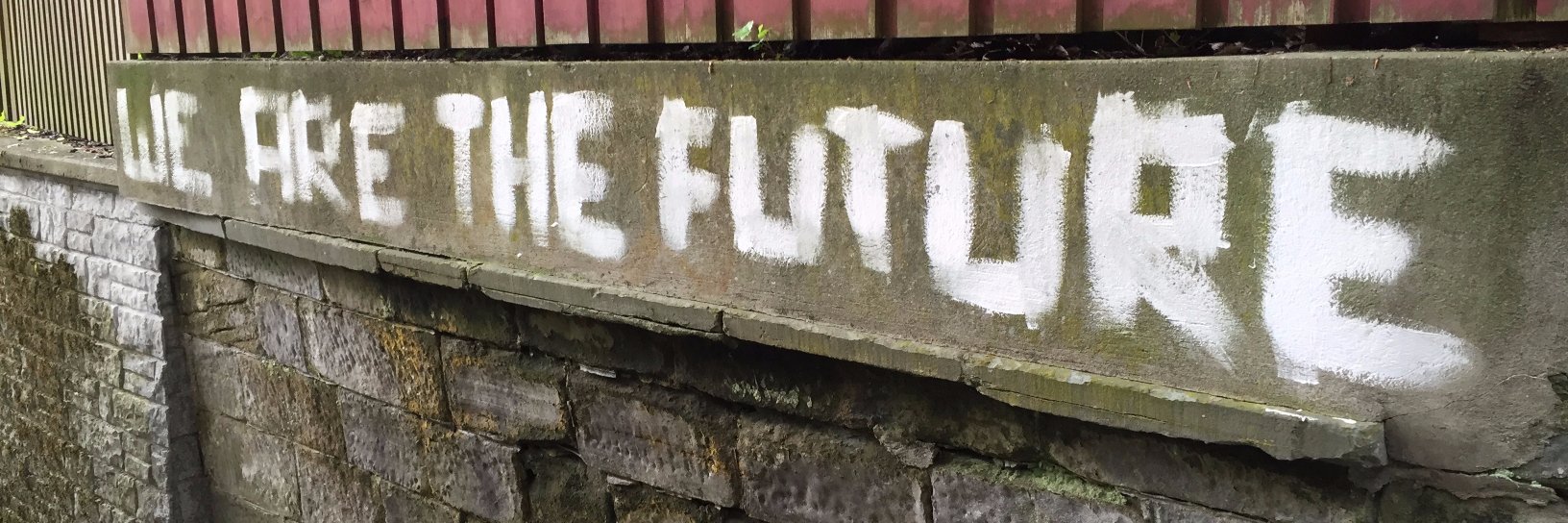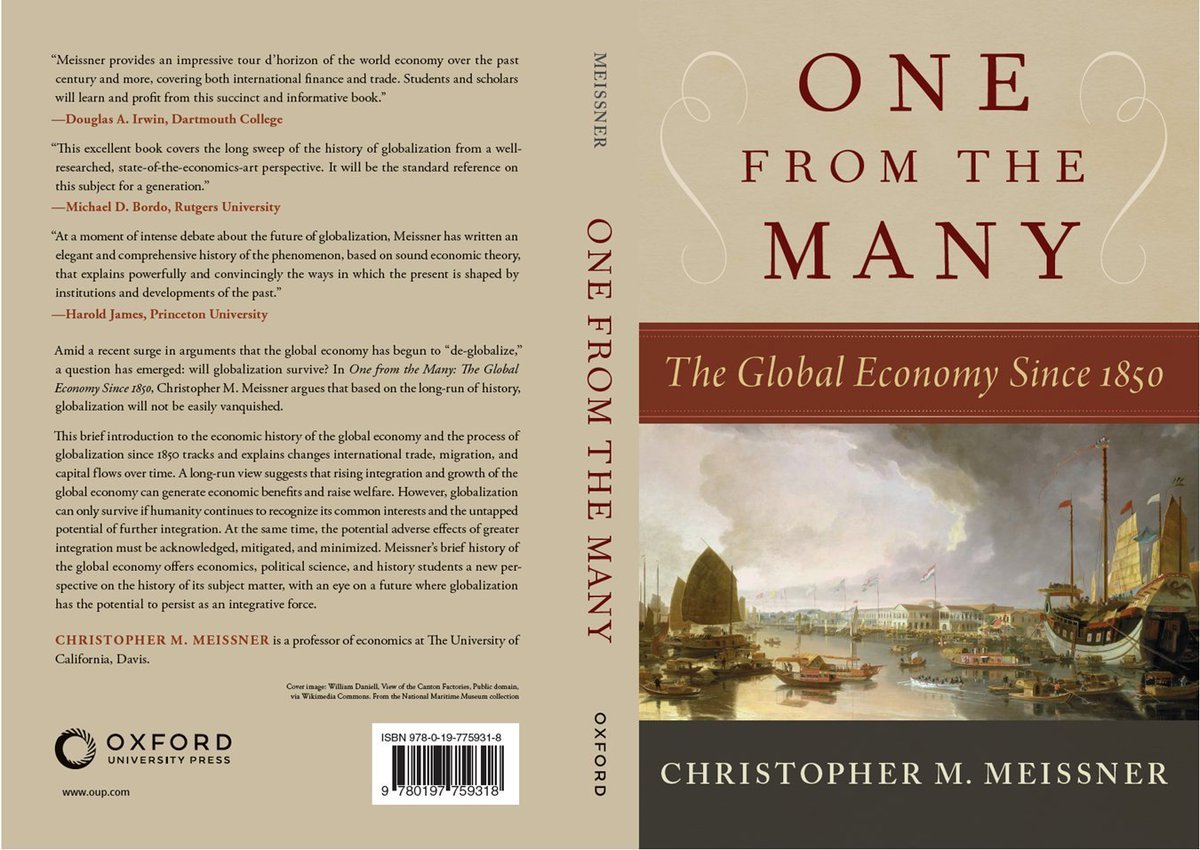
Christopher M. Meissner
@cmicmeissner
Professor of Economics, University of California, Davis. Interests: Globalization since 1800, financial crises since 1800, other Cliometric-type research.
Release date for my book "One from the Many: The Global Economy since 1850" is late-February 2024. Looking forward to sharing more about the book in the near future. More info from OUP: tinyurl.com/4kh56m97 Pre-orders on Amazon: tinyurl.com/y8kt8tep

Thanks Chris! By the way, I loved your book “One from the Many“ especially the way you pull in finance and migration into the usual trade globalisation picture. 👉 on your point, I don’t have any skin in the “name game“ but I think the politicians in Washington knew that they…
This description of US economic growth in the late 19th c. is somewhat mis-leading in my opinion. @BaldwinRE The US did not necessarily have a coherent "industrial policy" as we would conceive of it today.
Studying why some cities thrive while others decline finds that early industrial specialization lowers long-run productivity—a dynamic trade-off at the heart of place-based policy, from @StephanHeblich, Dávid Krisztián Nagy, Alex Trew, and Yanos Zylberberg nber.org/papers/w34029
An excellent survey! ‘Newest’ economic historians evaluate economic history over the past twenty-five years Network and language analysis of economic history cepr.org/voxeu/columns/… a través de @cepr_org
There is a bit of mythologizing about how we forced all young people to go to college and now they are economically ruined. Around 60% of people in their 30s do not have a college degree. And the college wage premium remains near a historical high.
Mike Rowe: “We’ve been telling kids for 15 years to learn to code.” “Well, AI is coming for the coders.” “It’s not coming for the welders, the plumbers, the steamfitters, the pipefitters, the HVAC, or the electricians.” “In Aspen, I sat and listened to Larry Fink say we need…
Back working with my historical trade data. In 1888, imported wine "for use of foreign ministers to the United States" was exempt from duty by order of Sec. of the Treasury. 2025 seems like a good time to re-instate this exception if it hasn't already been done.
PPL are dunking on this but presumably if producers are paying more for inputs due to tariffs, PPI would tend to go up - regardless of whether imports are directly included in the PPI or not.
It's almost like the economics profession doesn't fully understand tariffs
This book by Richard Baldwin really got me up to speed in a fast-changing environment. Great work! @BaldwinRE
Cascading protection in action! 👉See my long form on this in The Great Trade Hack cepr.org/publications/b…
Now on the Long Run: 'Post-war American technological transfers to Britain and Italy'. William Ciptonugroho (Cambridge) introduces his research on the Marshall Plan, which was financially supported by the Economic History Society through its Research Fund for Graduate Students.
Given that the trade “deals” Mr. Trump is making are not a formal trade agreement, let alone a free trade agreement, WTO Most Favored Nation rule would require Indonesia and Vietnam to grant zero tariff to ALL countries.
Examining the effects of public debt on municipal services and real outcomes during financial crises using data on US cities from 1924 to 1943, from Pawel Janas nber.org/papers/w34011
Many thanks to Markus Lampe for his review of my book "One from the Many: The Global Economy since 1850" in the Journal of Economic History @EconHistAssoc doi.org/10.1017/S00220…